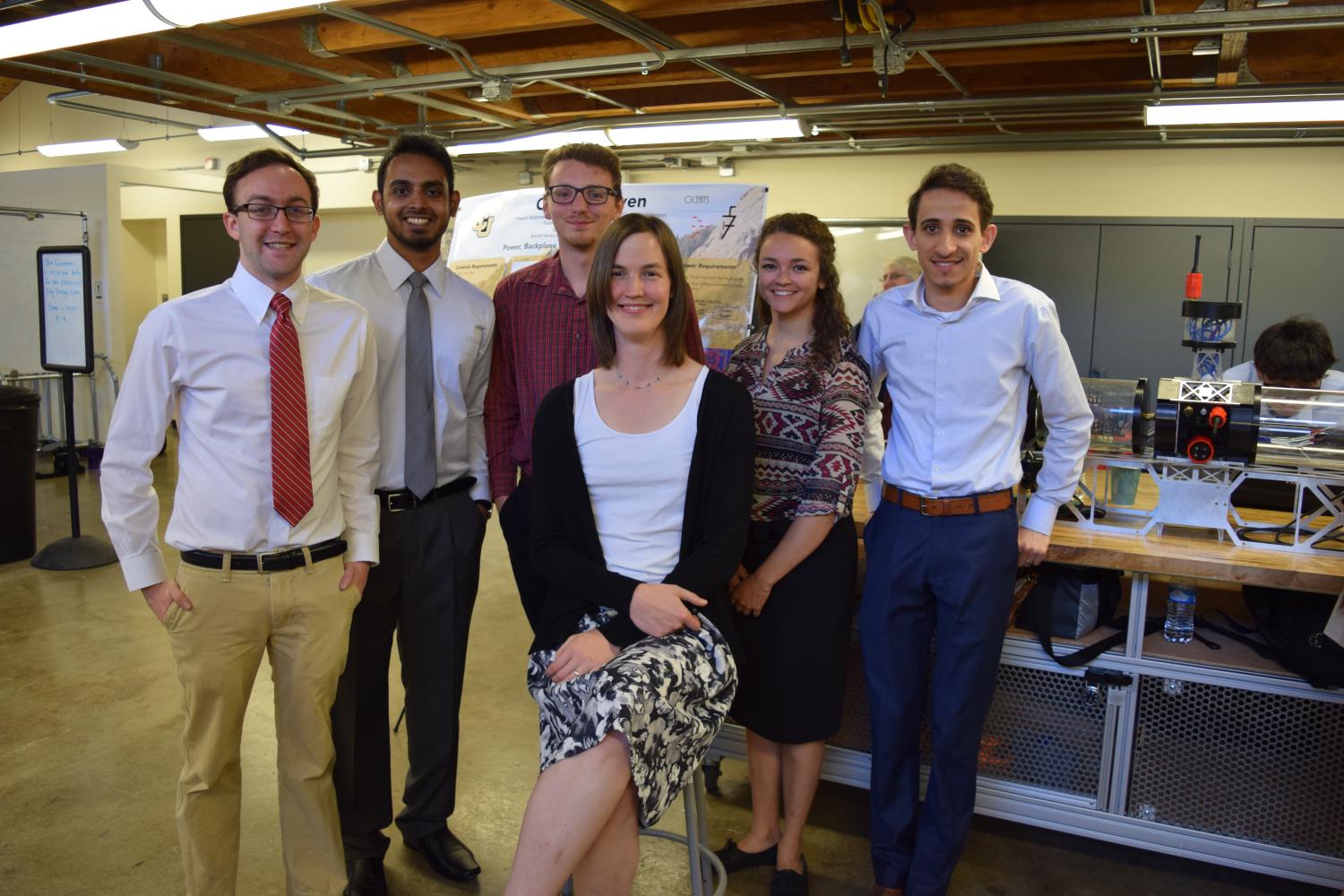Ocean’s 7

Thank you to our sponsor, the RoboSub Club!
In previous years the University of Colorado Boulder RoboSub team has discovered many problems in its electronic design including wire management, power delivery, and excessive CPU overhead. In addition the team has had limited vehicle control in previous years. The goal of Ocean’s 7 is to eliminate these problems with its power system, backplane, and controls system.
The backplane will standardize power distribution and data transfer throughout the vehicle. This will help eliminate wires simplifying wire management. Each board designed by Ocean’s 7 will connect to the backplane via board-to-board connectors. Additional board-to-board connectors will be available to the RoboSub team for any incidental boards the team may create.
The power system will first merge together two 14.8V, 100A battery inputs into a single 200A input. This input will be redistributed to motors and the power conversion board. Ocean’s 7’s power conversion board will use switching buck/boost converters to output voltages and currents required by the RoboSub team. These different power rails will then be redistributed along the backplane. Our buck/boost converters will be designed to optimize power usage.
The control system will be a custom board, which takes information about desired velocities from the CPU and offloads the fine controls from the processor. This will give the RoboSub team more optimal stability control, while also offloading processes from the CPU.
The RoboSub autonomous underwater vehicle (AUV) will benefit from a more cohesive internal electronics system. The RoboSub team will have an easier time assembling the product since it will slot together in the backplane, and will be able to focus on other tasks like computer vision. The systems will give the RoboSub team a leg up in the AUVSI RoboSub competition by optimizing controls and distributing power throughout the vehicle.

